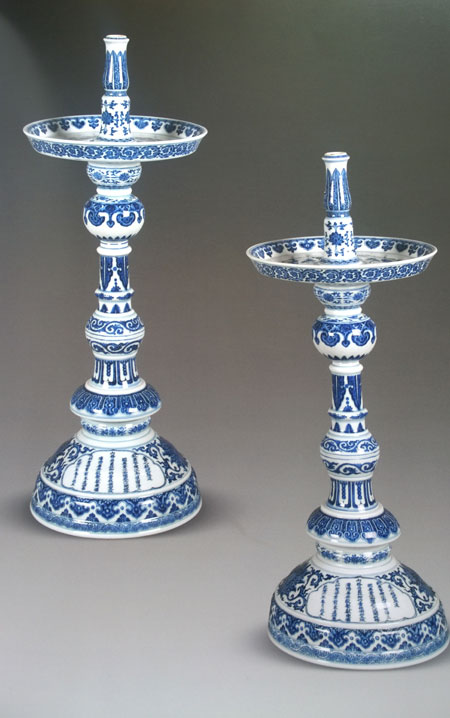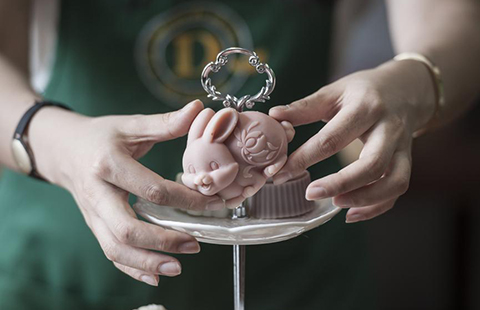High taxes raise hurdle to return of lost Chinese antiques
Updated: 2015-07-03 17:38
(Ecns.cn)
|
|||||||||
 |
|
Underglazed blue candle holders, kept by the Victoria and Albert Museum, are featured in the newly published Selected Overseas Chinese Cultural Relics. [Photo provided to China Daily] |
Although the fight for return of Chinese cultural relics has been hot, there are still more than 10 million antiques lost overseas. High taxes on those antiques have been a big reason, Beijing Business Today has reported.
Taxes remain the biggest obstacle separating China's domestic market from antiques lost overseas, according to Ou Shuying, the vice secretary general of the China Association of Auctioneers.
Since 2011, those bringing artwork into China through the Custom's office are required to pay a 30 percent tax, making the procedure less attractive.
Even inside China, it still remains complicated to organize trade and exhibitions of such reclaimed relics, says Xu Chen, head of the public economic department at the University of International Business and Economics.
The outlook of China's domestic antique market remains murky, Ou added. It remains unclear whether antique holders are willing to sell; and if they are, whether they can obtain rewarding prices. What's more, a lack of regulation in the Chinese antique market compared to overseas markets could also hurt seller confidence.
In China, the entire system that evolves around antique trade remains incomplete, including price assessment, insurance, package and transportation, storage, maintenance and repair.
It is suggested that China needs to revise its laws and regulations regarding antique trading. It is difficult not only for overseas antiques to return to China, but also for domestic antiques to go abroad.
China has established a special platform to facilitate the reclaiming and trade of cultural relics lost overseas. Established at the National Base for International Cultural Trade in Beijing's Tianzhu Free Trade Zone, the platform will leverage preferential policies to display and trade cultural relics.
- Injured ROK tourists in intensive care
- 36 dead, 26 missing after banca capsized in C. Philippines
- Thai navy plans to buy three Chinese subs
- Mass casualties in Indonesian military plane crash
- Japan's LDP lawmaker denounces Abe's security policies
- More than 100 feared dead in Indonesian military plane crash

 Solar-powered plane breaks solo flight record
Solar-powered plane breaks solo flight record
 A soap maker's fragrant life
A soap maker's fragrant life
 Ten photos you don't wanna miss - July 3
Ten photos you don't wanna miss - July 3
 Cooling off to escape the heat wave
Cooling off to escape the heat wave
 Top 10 best hotel booking apps for Android
Top 10 best hotel booking apps for Android
 Western Europe swelters in long-lasting heat wave
Western Europe swelters in long-lasting heat wave
 Top 10 shareholders of AIIB
Top 10 shareholders of AIIB
 Massive Hello Kitty theme park opens to visitors
Massive Hello Kitty theme park opens to visitors
Most Viewed
Editor's Picks

|

|

|

|

|

|
Today's Top News
Veteran diplomat in Havana shortlisted for ambassador
Solar-powered plane breaks solo flight record
California mulls move to 'zero-emission buses'
Move to Houston pays off with new business
IPR law acted out
Economic growth driving force for China's future mobility: Think tank
'Operation duck' and the student savior from internment camp
White House lifts ban on cameras during public tours
US Weekly

|

|







